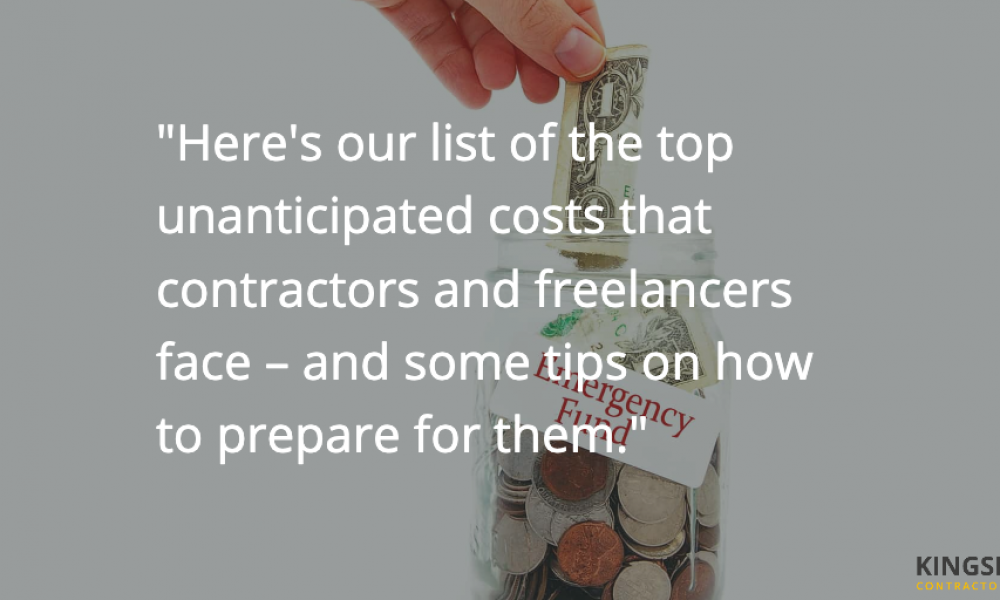71% of contractors are looking for outside IR35 roles: what can recruiters do?
It’s become one of the biggest challenges in contractor recruitment – contractors are hungry for outside IR35 roles, but there…
Self-employment as a contractor can seem like an easy way to keep your costs down: low overheads, no wage bill,…

Self-employment as a contractor can seem like an easy way to keep your costs down: low overheads, no wage bill, perhaps a home office to save on commuting costs. However, the reality is that even experienced contractors can get caught out by all sorts of unexpected expenses. Here’s our list of the top unanticipated spends that contractors and freelancers face ? and some tips on how to prepare for them.
Now, in an ideal world, contractors are putting aside funds for their taxes as they go along, supported by a good accountant or tax advisor. However, as recent high-profile cases on issues like the Loan Charge and IR35 working have demonstrated, there is always the possibility of a hefty and unexpected bill from HMRC dropping through the door. A business can quickly turn from profit to ruin on based on how much you owe the public coffers.
Top tips:
Kingsbridge’s Legal Expenses cover add-on offers tax protection including IR35 coverage.
Nobody wants to get sick, and there’s never a good time to be ill. This is especially true if you are a contractor or freelancer, because with no entitlement to statutory sick pay, no work means no money. Consider how you would manage if you had to stop work for a while to recover.
Top tips:
Some months are just like that. The phone doesn’t ring. You wonder if maybe your email server is down, because refreshing it constantly doesn’t seem to do anything. As a contractor, quiet spells are agony, because, again, no work means no money coming in. The good news is, it will almost certainly pick up again soon, especially if you use this down time to do a big marketing push.
Top tips:
This is the expense that every contractor thinks will never happen to them. It’s also, potentially, one of the most cripplingly expensive costs that a contractor can face. A legal challenge can present itself in many different forms: a complaint about your services; an accusation of a breach of company law; or an injury sustained by a client tripping over your equipment.
Top tips:
As a minimum, we recommend contractors hold the following insurances:
That’s why all of these are included as standard in Kingsbridge’s package, which is tailored specifically to the needs of contractors like you. To get your cover going, give us a call on 01242 808740